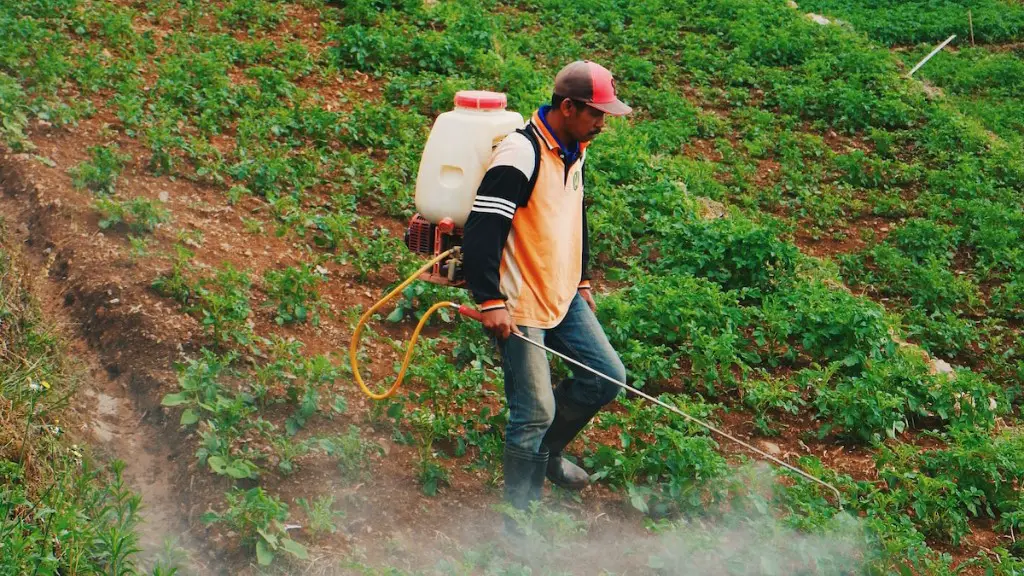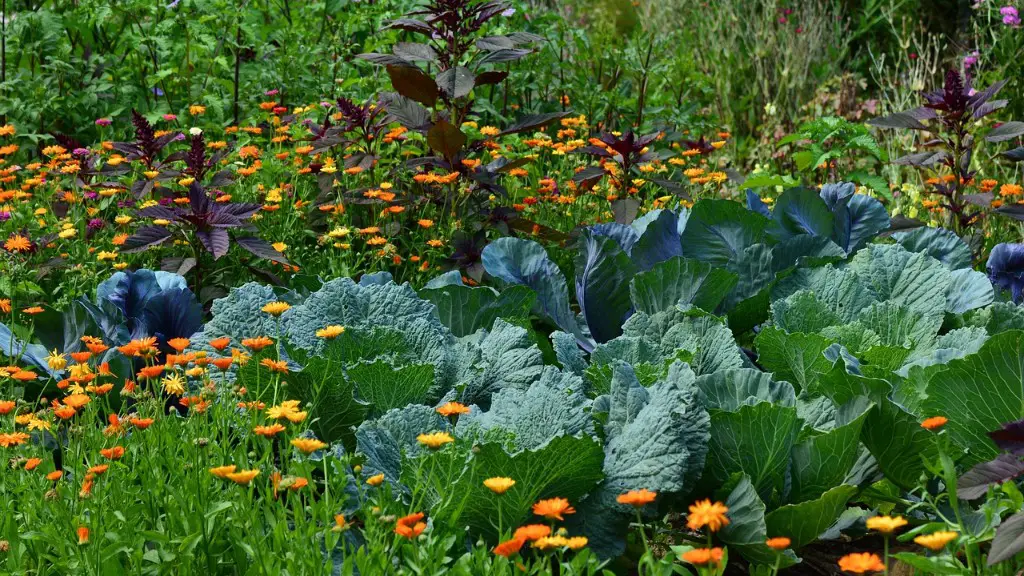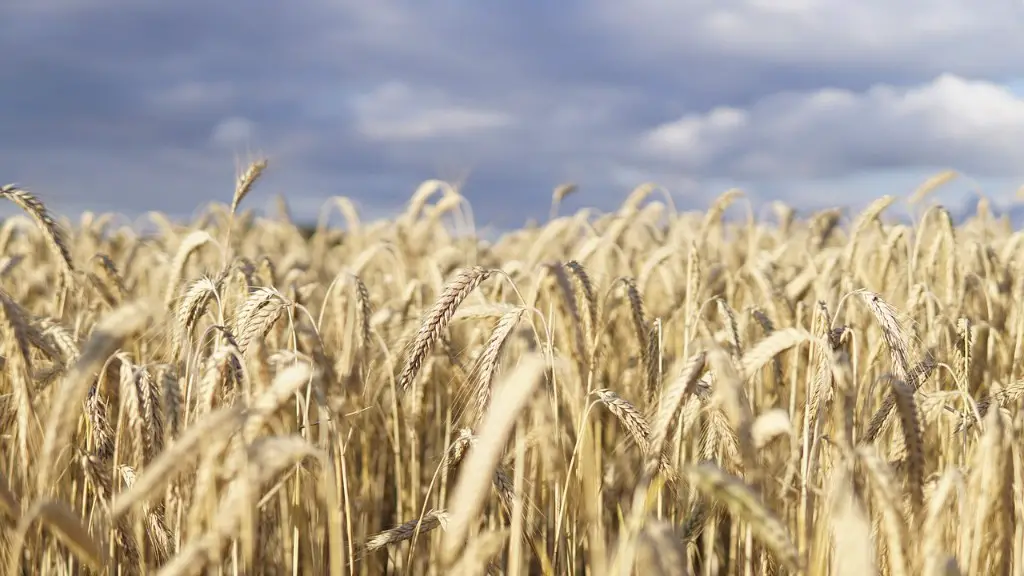Learning everything about agriculture requires effort and dedication. It’s a vast field of knowledge with complexities that need to be addressed. The process of learning about agriculture begins in the classroom and expands outward. While it can be daunting, there are some steps that can be taken to make the process easier. Here are a few to help you get started:
1. Familiarize yourself with the basics of farming. Start by reading some resources on the history and types of farming and the related industries. Learn about different crops and plants, soil types and management, pest control and environmental issues. Take classes geared towards agriculture or become a certified master gardener in your local community.
2. Visit agricultural research centers and farms. Make sure to take a tour of the agricultural research centers and ideally visit some of the farms and fields. This will give you a better understanding of the processes and equipment that are used in agricultural production.
3. Benefit from online resources. There are a variety of books and online resources available on the internet. You can also read articles and watch videos about different topics related to agriculture. This can help you understand concepts in greater detail.
4. Participate in discussions. Listen to farmers and agricultural scientists and take part in talks and discussions that focus on agriculture. This can help you gain new insights about the topic, ask questions, and find out more about agriculture from the experts who work in the field.
5. Get hands-on experience. Put what you’ve learned into practice and get hands-on experience. Participate in internships and work on agricultural projects related to your interests. There are also volunteer programs in developing countries where you can assist in providing food and agricultural assistance.
How to Learn About Agricultural Technology
Agricultural technology comes with its own specialized set of knowledge, skills, and tools that make it easier to farm and increase yields. Learning about agricultural technology involves studying new technologies in agriculture and understanding their applications and uses. Here are a few things you can do to learn more about agricultural technology:
1. Research the newest technologies in agriculture. Keep an eye out for the latest advancements in agricultural technology, such as artificial intelligence, drones, robots, and block chain. Read up on how these technologies are being applied and being used in the agriculture industry.
2. Attend agricultural events and conferences. Attend agricultural events and conferences that are focused on agricultural technologies so you can learn from experts in the field. Talk to innovators, investors, and companies that are pioneering agricultural technology.
3. Take courses about agricultural technology. Look for courses offered at universities and online platforms that focus on agricultural technology. These courses will provide more in-depth knowledge and help you better understand the technology being used in the agriculture industry.
4. Get a hands-on experience. One of the best ways to understand agricultural technology is to get hands-on experience with it. Join research projects or internships that are geared towards agricultural technology.
5. Network with other like-minded people. Networking with other people who are passionate about agriculture and technology is a great way to stay up-to-date with the latest developments and breakthroughs in the field.
How to Learn About Agricultural Economics
Understanding agricultural economics is essential in understanding the global agricultural industry. It involves understanding the principles of economics principles in the context of agriculture, such as supply and demand, current markets and prices, policies, and international trade. Here are a few tips to help you learn more about agricultural economics:
1. Learn the fundamentals of economics. It’s important to have a solid understanding of the principles of economics to better understand agricultural economics. Make sure to read up on the fundamentals of economics and the different economic models such as those of micro and macro economics.
2. Take classes in agricultural economics. Taking classes in agricultural economics is a great way to learn more about the subject. Utilize online resources to find classes or even universities that offer courses in agricultural economics.
3. Research the latest topics in agricultural economics. Follow publications, websites, and blogs that focus on agricultural economics and stay up to date on the latest topics, issues, and trends in the field. Read up on current news and reports related to agricultural economics.
4. Participate in discussions. Attend events and join discussion groups with other people who have an interest in agricultural economics. This is a great way to gain new perspectives, ask questions and get advice, and learn from other people who are passionate about the field.
5. Network with professionals. Network with professionals in the field who have an in-depth understanding of agricultural economics and are willing to share their knowledge. Don’t hesitate to reach out to people in the industry who might have more experience and knowledge on the topic and can help you in your studies.
How to Learn About Global Agriculture
Learning about global agriculture involves understanding how global economic and environmental factors impact the world’s food production and security. It’s a complex and ever-evolving field, so it’s important to take the time to learn about the broad topics within global agriculture. Here are a few tips to help you get started:
1. Learn about food security and distribution. Understand the concepts of food security, food production and supply, and nutrition. You should also learn about food wastage, food systems, and how food is distributed and consumed around the world. Read up on sustainable food production and find resources and initiatives that focus on food security.
2. Research the global food market. Make sure to read up on the global food market, such as the trends in food supply and demand and the global food trade. Understand the role of multinational corporations and read up on the impact of different policies on the global food market.
3. Stay updated with recent changes. Keep up to date with changes in the global food system, such as policies and legislation related to food security, agricultural subsidies, and climate change. Read reports from international organizations such as the UN and World Bank.
4. Take part in conversations. Participate in discussions, whether in the form of conferences, seminars, or online, about global agriculture and food security. Ask questions, listen to experts, and gain new insights from other people who are passionate about the field.
5. Network with professionals. Reach out to professionals in the industry who deal with global agriculture and food security. Network with them to get their advice and insight, and gain more knowledge about the field.
How to Learn About Sustainable Agriculture
Sustainable agriculture is an important part of the future of food production. It involves growing food in a way that is environmentally friendly and takes into account social, economic, and cultural aspects. Here are a few tips to help you learn more:
1. Read up on sustainable agriculture principles. Read up on the principles of sustainable agriculture, such as the 3Rs (reduce, reuse, recycle), conservation, and organic farming. Understand the concepts of agroforestry, no-till farming, and integrated pest management.
2. Research the current state of sustainable agriculture. Research the current state of sustainable agriculture and the recent trends in the industry. Read up on current news and reports from organizations such as the UN and Food and Agriculture Organization (FAO).
3. Take courses in sustainable agriculture. Look for courses that are focused on sustainable agriculture and gain more in-depth knowledge on the subject. Take advantage of open courses offered by universities that are specifically focused on sustainable agriculture.
4. Participate in conferences and seminars. Attend conferences and seminars related to sustainable agriculture and be part of the discussion. Ask questions, get advice, and listen to the people who work in the field and have a better understanding of the subject.
5. Network with others in the field. Network with people who work in the field of sustainable agriculture and get advice from them on the best practices and current trends in the industry. This is a great way to stay up to date with the latest developments in the field.





